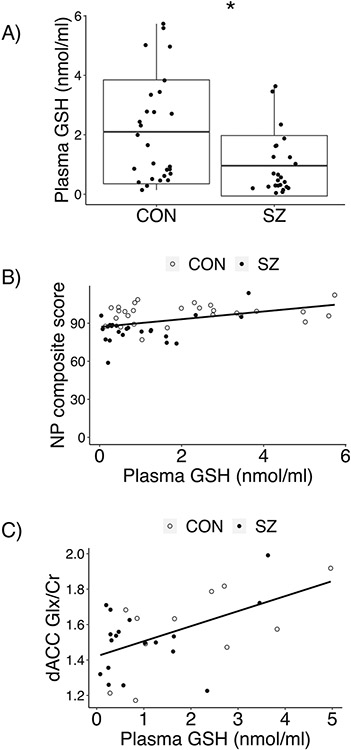Fig. 2. Comparison of plasma GSH between groups as well as evaluation of its relationship with other measured variables across and within groups.
a GSH levels in plasma were lower in 24 patients with SZ (0.96 ± 1.02 nmol/ml) compared with those of 27 CON (2.10 ± 1.75 nmol/ml; adjusted for confounding variables P = 0.02; unadjusted P = 0.006). Unadjusted data shown. b Adjusting for confounding variables, plasma GSH was found to be positively correlated with neuropsychological (NP) composite score within data from the total population (r = 0.30, P = 0.03) and within patients alone (r = 0.57, P = 0.003), but not within the control group. Permutation testing further confirmed the significance of this finding (total population: P = 0.04; patients only: P = 0.01). Results were unchanged without adjustment (r = 0.44, P = 0.002; patients only: r = 0.48, P = 0.02). Plasma GSH was not correlated with NP composite score within the control group (with or without adjusting for confounding variables). Unadjusted data shown. c Adjusting for confounding variables, GSH in plasma and Glx in dACC were positively correlated in the total population, patient only group, and control only group. Permutation testing confirmed the significance of these results. Without adjustment, the results were unchanged for the total population or control only group, but were not significant for the patient only group. Unadjusted data shown.

